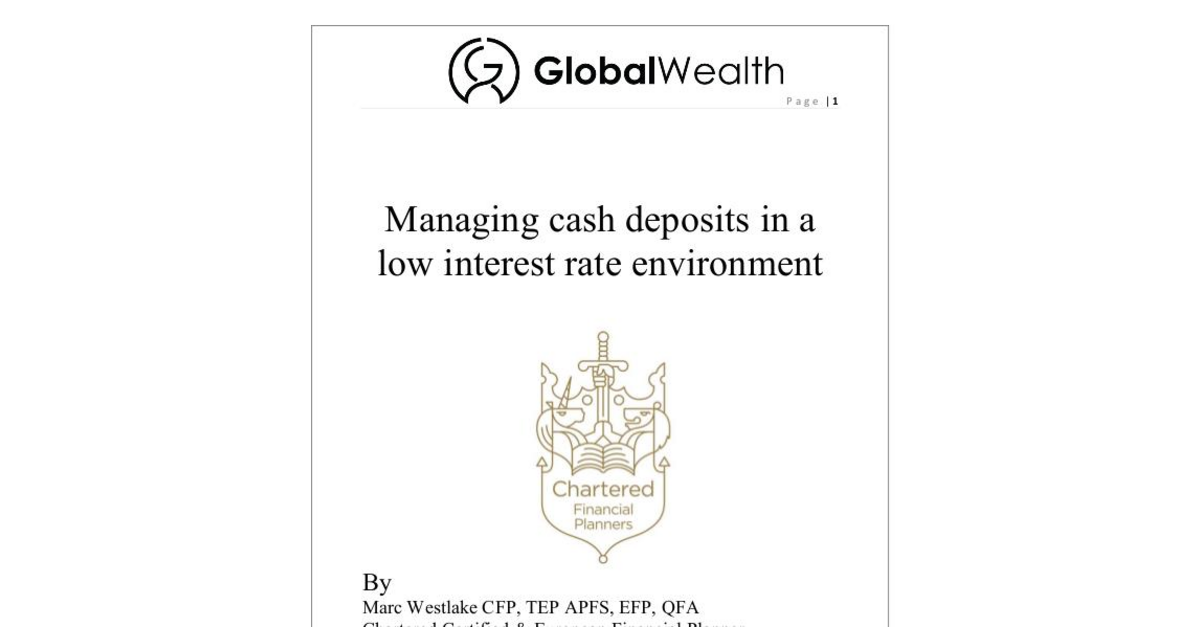@Brendan Burgess
For the avoidance of doubt I did not say at any point in the thread referred to that I was conservative, risk adverse or against having an equity bias over the long term. Quite the opposite, I genuinely believe that many investors are, to use a phrase coined during a systematic investigation by HM Treasury in the UK, "recklessly conservative"
Exhibit A
This guide considers the role that cash or short-term high quality fixed interest (also known as bonds) plays in every investors portfolio

viewer.joomag.com
Clearly an equity biased portfolio makes sense over the long term but as Keynes said; "in the long run we are all dead"
My specific issue is with the casual way in which a 100% equity portfolio (which it turns out is just 12 stocks which is frankly insane) is promoted by yourself and others as suitable and appropriate for the lay investor and specifically in the context of a post retirement income portfolio.
For many investors a 100% equity portfolio is objectively imprudent as they simply lack the
capacity for loss
example
Let’s say that 5 investor's each have an objective of an annual gross return of €20,000pa
| Investment Portfolio | Required investment return | Risk definition |
| Investor A | €100,000 | 20% | Extremely high risk |
| Investor B | €250,000 | 8%pa | High risk |
| Investor C | €500,000 | 4%pa | Medium risk |
| Investor D | €1m | 2%pa | Low risk |
| Investor E | €5m | 0.4%pa | Very low risk |
Each investor has exactly the same income objective, but the investment risk associated with this objective is directly related to
their starting capital. It has nothing to do with their risk tolerance or willingness to take the required risk to achieve the objective. It is simply a mathematical fact that someone with €5m needs to take less investment risk in order to achieve the same investment income as someone with less money.
So, whilst it might be ok for you and others to take on a 100% equity portfolio so that a 50% drop might leave you with say €500 grand. You might be badly bruised but you can probably survive.
Its not acceptable to take that personal perspective and apply it to the population at large when providing financial advice. Your sample of one is virtually irrelevant. You might be lucky, but luck isn't a good investment strategy or we would all just go to Vegas!
How risky is the market?
I went to great lengths to spell this out in the thread and there is over 100 years of data in the attached guide.
Here is an example
By way of an example using the US Market for the period January 1929 to December 1938
The annualised return of the US Market over this period was -0.89%pa a total return of -8.52%
However, the cumulative return to the end of 1932 was -64.22% that's losing 22.66%pa for 4 years.
That means a million invested at the start of 1929 was worth around 360,000 by the end of 1932!!
You would need a return of 278% just to get back to where you started just 4 years earlier.
How risky are individual stocks?
A very poorly diversified collection of just 12 Stocks is even more risky than the market since any individual company can, and frequently does, go to ZERO value.
[broken link removed]
What view do the courts take?
For many years we have been guided by the test of the man or woman on the Clapham Omnibus, established in the Court of Appeal, re Whiteley 1886
“as an ordinary prudent man would take if he were minded to make an investment for the benefit of other people for whom he felt morally bound to provide”
This has been further evolved over the years in many countries and in some cases legislation has been written to enforce prudence.
For example the Prudent Investment Rule 1992 in the USA states
- Sound diversification is fundamental to risk management and is therefore ordinarily required of trustees.
- Risk and return are so directly related that trustees have a duty to analyse and make conscious decisions concerning the levels of risk appropriate to the purposes, distribution requirements, and other circumstances of the trusts they administer.
- Trustees have a duty to avoid fees, transaction costs and other expenses that are not justified by the needs and realistic objectives of the trust’s investment program.
- The fiduciary duty of impartiality requires a balancing of the elements of return between production of current income and the protection of purchasing power.
- Trustees may have a duty as well as the authority to delegate as prudent investors would.
“Restatement of the Law, Trust, Prudent Investor Rule” published in the USA in 1992
So, the subject of this thread now seems to have changed from "what is wrong with a 100% equity portfolio?" to "how do you advise a conservative saver to invest some of their money?"
talk about two ends of the spectrum!
So back to exhibit A
This guide considers the role that cash or short-term high quality fixed interest (also known as bonds) plays in every investors portfolio

viewer.joomag.com
appropriate benchmarking
An important factor when considering how successful an investment adviser has been at getting a client to follow and act upon prudent advice is to assign a risk appropriate benchmark for comparison purposes.
The goal of a client will never be to track a random index such as the Dow Jones or to make the highest return in an annual Micky measuring contest.
Prudent investors in retirement work out how much they need to support their lifestyle and therefore how much income their portfolio needs to generate, their adviser then works out what portfolio has that expected return and benchmarks their performance to the annual required return of the client rather than some arbitrary benchmark or the increasingly common approach of ESMA risk bands
More people invest in an Approved Retirement Fund (ARF), over the certainty of an annuity. But do you need to review your ARF strategy?

globalwealth.ie
Using this approach means that the painting by numbers risk profile approach
When constructing investment portfolios, it is essential that we understand risk tolerance, AS WELL as capacity and risk required.

globalwealth.ie
is thrown out and replaced by a more appropriate client-centric advice process.
Many investors find it difficult to achieve returns offered by the markets due to a misunderstanding of investment risk, costs and taxes.

globalwealth.ie
“Ignorance more frequently begets confidence than does knowledge: it is those who know little, and not those who know much, who so positively assert that this or that problem will never be solved by science.” Charles Darwin



